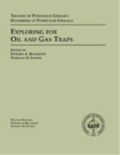Difference between revisions of "Biostratigraphic applications"
Jump to navigation
Jump to search
FWhitehurst (talk | contribs) |
FWhitehurst (talk | contribs) |
||
| Line 15: | Line 15: | ||
}} | }} | ||
| − | Paleontologists have traditionally used fossil data to provide information about the relative age, stratigraphic correlation, and [[Paleoenvironmental analysis|paleoenvironment]] (notably [[paleobathymetry]]) of sedimentary strata. The importance of these tasks remains high, but new approaches and technology have extended the applicability of biostratigraphic data to analyzing thermal maturation and sequence stratigraphy. | + | Paleontologists have traditionally used fossil data to provide information about the relative age, stratigraphic correlation, and [[Paleoenvironmental analysis|paleoenvironment]] (notably [[paleobathymetry]]) of sedimentary strata. The importance of these tasks remains high, but new approaches and technology have extended the applicability of biostratigraphic data to analyzing [[thermal maturation]] and [[sequence stratigraphy]]. |
==See also== | ==See also== | ||
Revision as of 14:04, 17 April 2014
| Exploring for Oil and Gas Traps | |

| |
| Series | Treatise in Petroleum Geology |
|---|---|
| Part | Predicting the occurrence of oil and gas traps |
| Chapter | Applied paleontology |
| Author | Robert L. Fleisher, H. Richard Lane |
| Link | Web page |
| Store | AAPG Store |
Paleontologists have traditionally used fossil data to provide information about the relative age, stratigraphic correlation, and paleoenvironment (notably paleobathymetry) of sedimentary strata. The importance of these tasks remains high, but new approaches and technology have extended the applicability of biostratigraphic data to analyzing thermal maturation and sequence stratigraphy.
See also
- Biostratigraphic correlation and age determination
- Paleoenvironmental analysis
- Paleobathymetry
- Quantitative paleoenvironmental analysis
- Palynofacies and kerogen analysis
- Thermal maturation
- Sequence stratigraphy